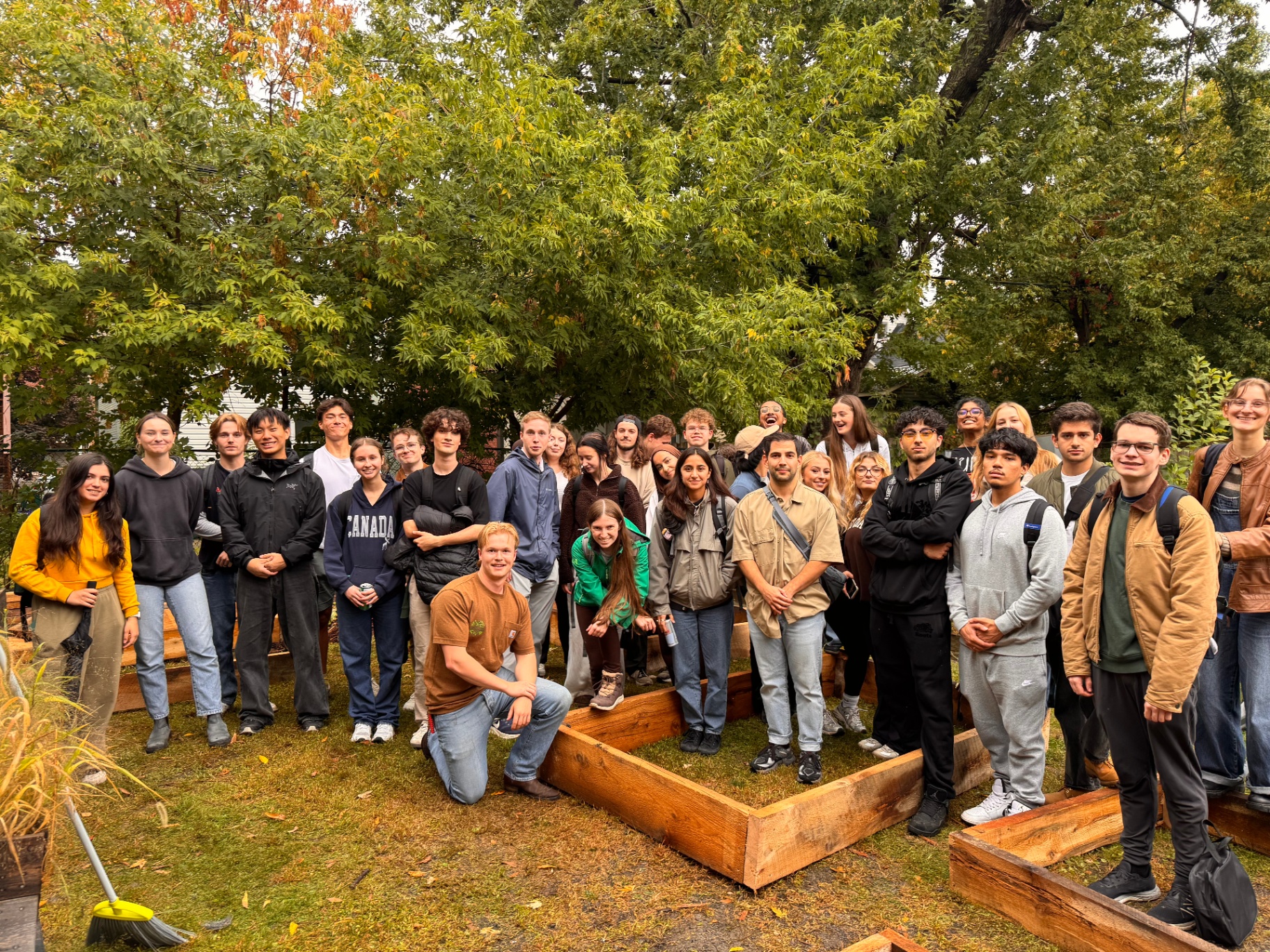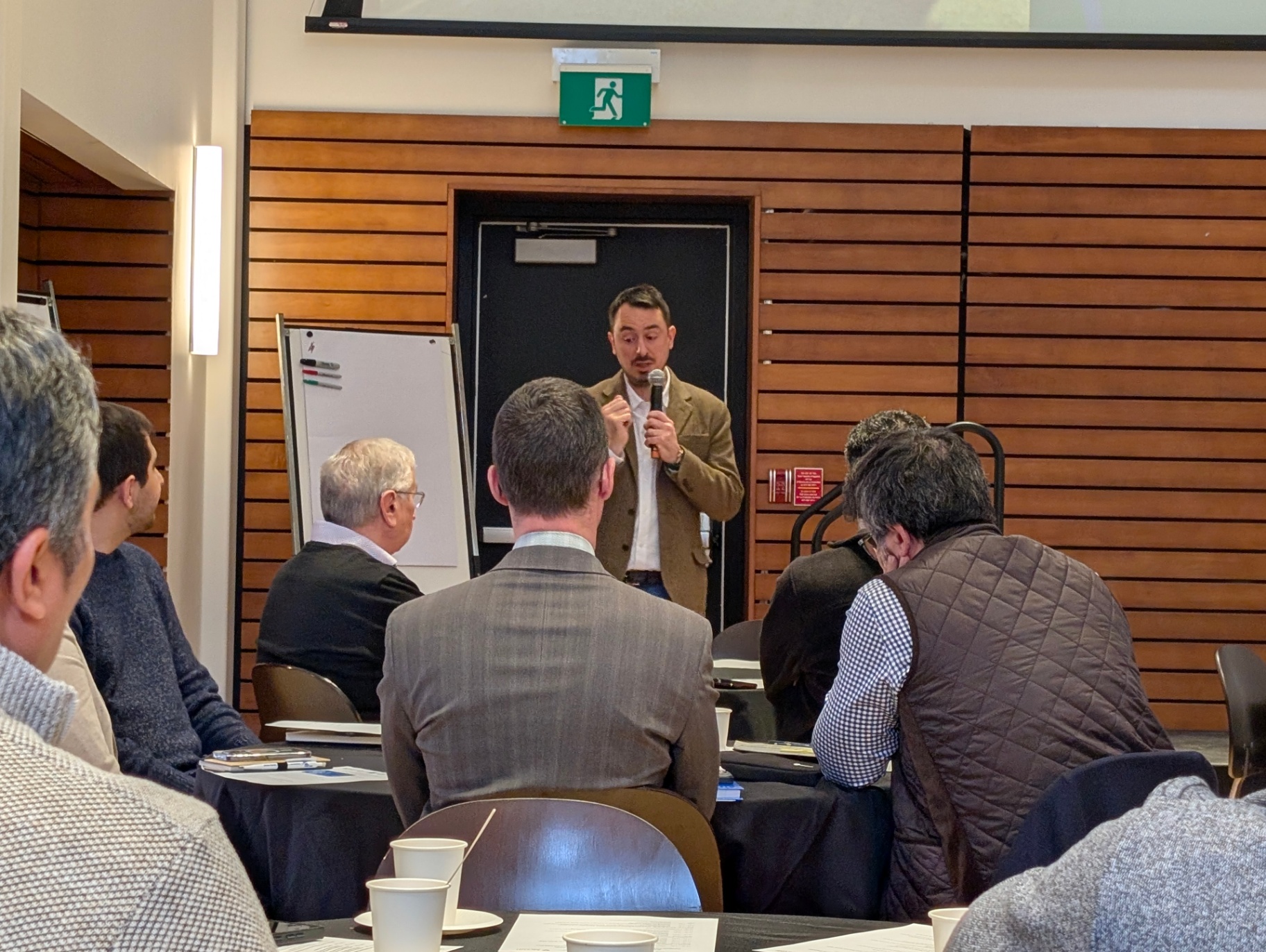This summer, the University of Ottawa had the privilege of co-leading an extraordinary learning experience: the C4 (Cross Campus Capstone Classroom) Summer 2025 COIL course on homelessness. Co-led by UOttawa’s own engineering professor Franz Newland and powered by a network of partners across Ontario and Brazil, this three-week interdisciplinary sprint was more than a course. It was a challenge to engage with one of the most complex social issues of our time with empathy, creativity, and collaboration.
And that’s exactly what the students did.
Spanning two clusters, twelve teams, five institutions, and countless community voices, the C4 Challenge posed a deceptively simple yet profound question: How might we co-create meaningful improvements to the lives of those impacted by homelessness?
A Real-World House Built on Purpose
Students from uOttawa, York University, Wilfrid Laurier University, the University of Guelph, and Unisinos in Brazil came together in mixed teams, supported by faculty leads and student managers, to design real-world solutions to the layered facets of homelessness, from food insecurity and housing rights to youth empowerment and harm reduction.
The metaphor that framed their journey? A house.
Not merely a structure, but a symbol of identity, safety, and belonging. One that echoed throughout the teams' research, storytelling, and final presentations. And like any house, the process required blueprints, frameworks, and care: from ideation to stakeholder interviews, design prototypes to community partnerships.
The Student Voices & Recognition
The Green Academy proudly sponsored four students from the Telfer School of Management, offering them a unique opportunity to step into a multidisciplinary, multi-institutional arena during the Summer 2025 C4 COIL course on homelessness. Among them was Natasha Stewart,(Team 2.1), a fourth-year Management student, whose team created the Homelessness Funding Allocation Policy Simulator, a tool that empowers policymakers to model the long-term impact of their decisions using data grounded in lived experience. Their project won the C4 Innovation Award, sponsored by YSpace, for its creativity, real-world viability, and marketplace readiness. Reflecting on the experience, Natasha shared:
“Meeting real partners, hearing their stories, it wasn’t just an assignment. It was human.”
She spoke about how learning to question common myths and stereotypes around homelessness helped her become more empathetic and thoughtful, not only as a future business leader but also as a person.
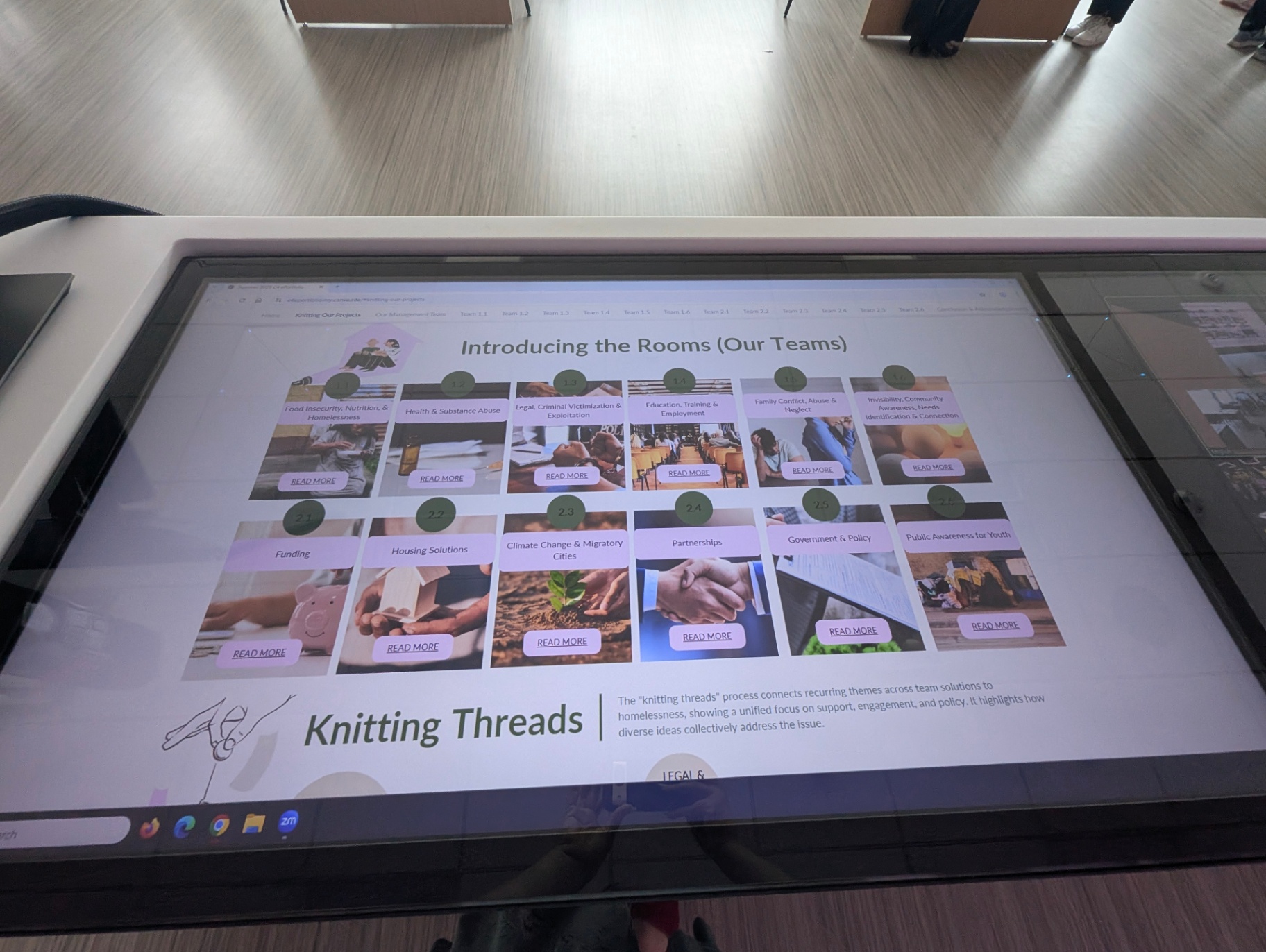
Joining her on the journey was Kevin O’Neal Sokeng Achigui (Team 2.2), a first-year student entering second year in Accounting. His team focused on designing a card-based empathy-building activity to support education and advocacy efforts around homelessness. Kevin brought a strong research mindset to the group, analyzing Ontario policy frameworks, building background sheets, and contributing translation and communications work. His biggest takeaway?
“This challenge helped me realize that even as business students, we have a role to play in building more equitable communities. Real solutions require empathy, collaboration, and long-term thinking.”
Also participating was Jiya Kansal (Team 2.4), an International Management student who helped her team develop a youth housing-access partnership model that bridges post-secondary institutions with local shelters. Jiya led the logistical planning and realism checks for the proposal, using a business lens to ensure the model was not only impactful but implementable. She reflected:
“It’s easy to assume resources are available, but this course made me realize how hard they can be to access. It changed how I view support systems and reminded me that no issue is too big to tackle when we work across sectors.”
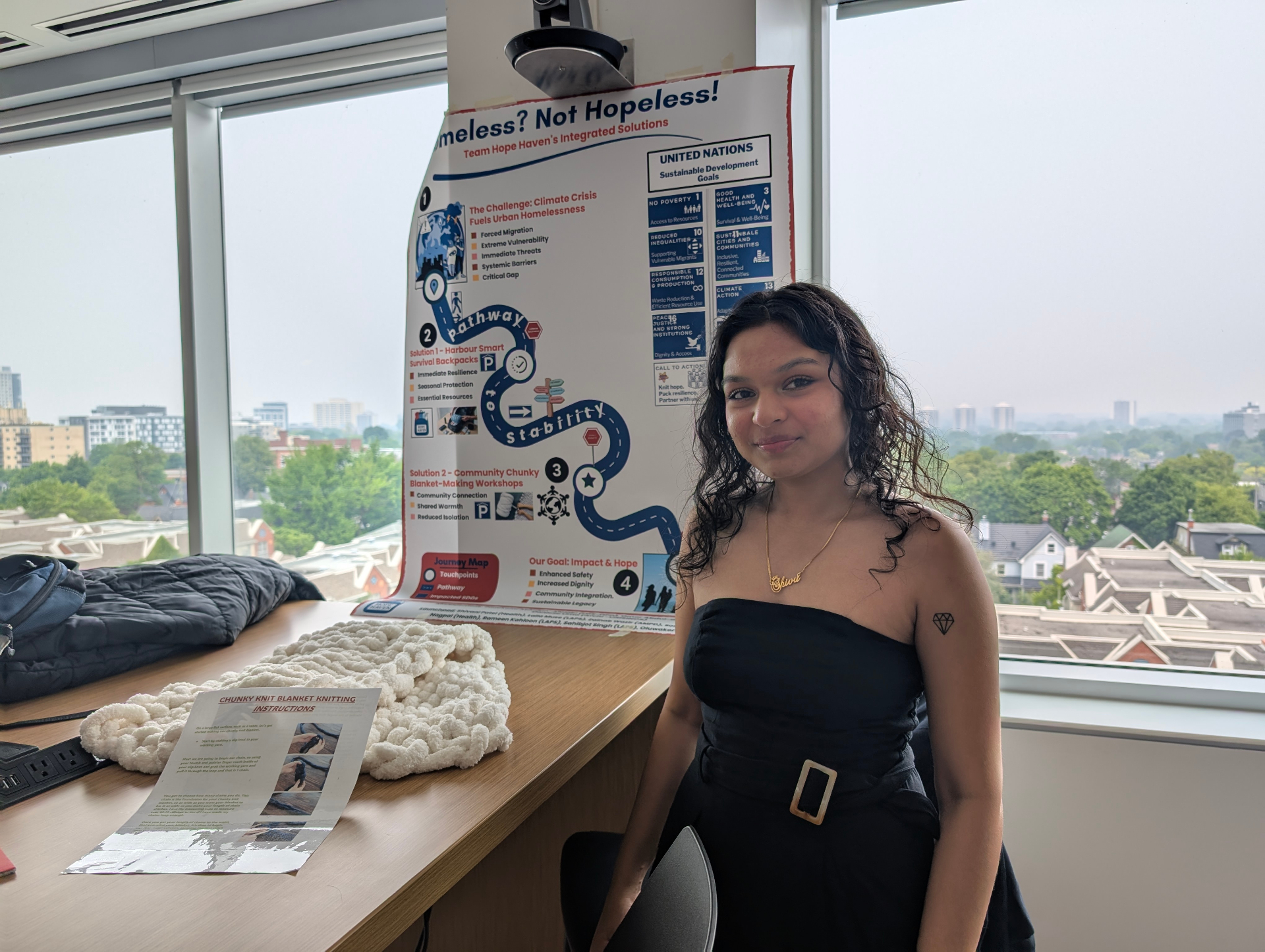
Finally, Shivani Patel (Team 2.3), contributed to the Smart Survival Backpack project, which aimed to create adaptable, tech-integrated gear designed with and for people experiencing homelessness. She emphasized the human-centred nature of the experience:
“It didn’t feel like a pitch. It was immersive. Being on-site, meeting people, we were designing something we knew would actually be used.”
Across all four teams, students celebrated the opportunity to ground their business knowledge in community realities, to co-create meaningful solutions with partners, and to build empathy and systems-thinking skills that will shape how they lead in the future.
Leadership, Legacy & Learning Across Borders
At the heart of the C4’s success was its structure: each team was supported by a management team of students who handled project coordination, communication, video production, and website design. The results? A collection of beautifully crafted digital portfolios and solution frameworks ready to share and scale. All now available on a dedicated platform that captures the full scope of all 12 teams’ work. Because an article alone can’t begin to convey the depth, creativity, and care each team poured into this experience, we highly encourage you to explore the platform for yourselves: Summer 2025 C4 ePortfolio
On Friday, June 6, Capstone Day unfolded across all participating institutions, with uOttawa hosting its gathering at the state-of-the-art Innova space.
The event brought all teams together, virtually and in person, for presentations, reflection, and awards. Judges engaged with students one-on-one, assessing not just ideas, but the thoughtfulness and depth behind them.
More to Come In the Near Future
If there’s one lesson The Green Academy takes forward from this summer’s three-week course, it’s that meaningful education must extend beyond the classroom.
Plans are already underway to adapt a new cross-faculty course here at uOttawa, building on the C4 model, so stay tuned for more news and updates soon.
Another C4 summer course is confirmed for next year, and the Green Academy will once again be taking part and sharing details with students in the coming months. We remain committed to supporting student-driven, interdisciplinary learning that aligns with the UN Sustainable Development Goals and centers on social impact.
Because this work matters, and because many students, like Natasha, Kevin, Jiya and Shivani, are more than ready.


This article was written by Takwa Youssef, coordinator of Telfer's Green Academy.
As coordinator of the Green Academy, Takwa plays a key role in supporting the delivery of the academy's interdisciplinary programs. She oversees logistics, event coordination, and resource management, ensuring the successful execution of courses, workshops, training, and research. Takwa bridges faculties, services, and external partners, cultivating collaboration that enriches the program’s impact. She manages communication, finances and administration, while also driving the Academy’s long-term vision by strengthening connections across disciplines and supporting its ongoing growth.
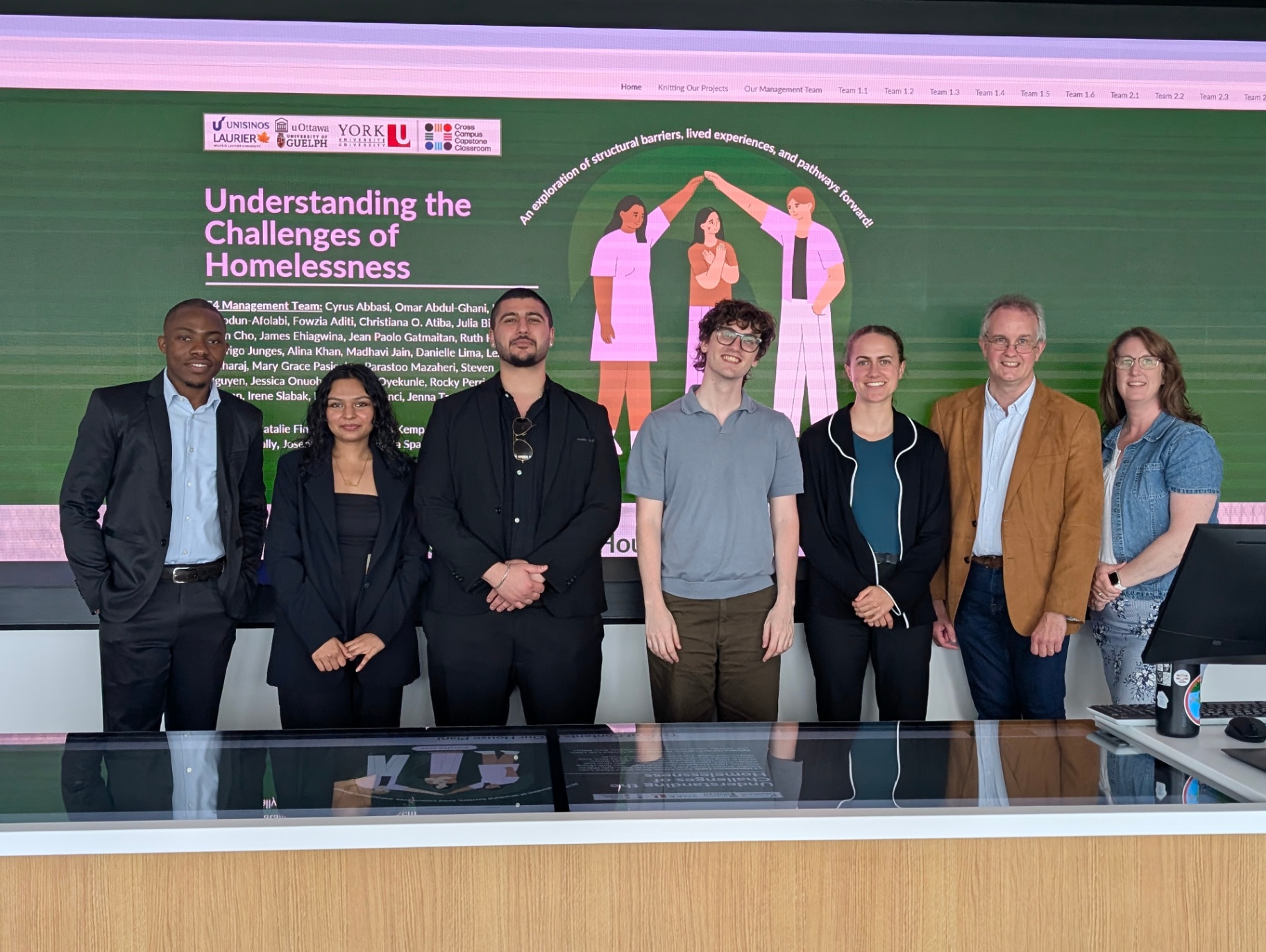

.jpg)
